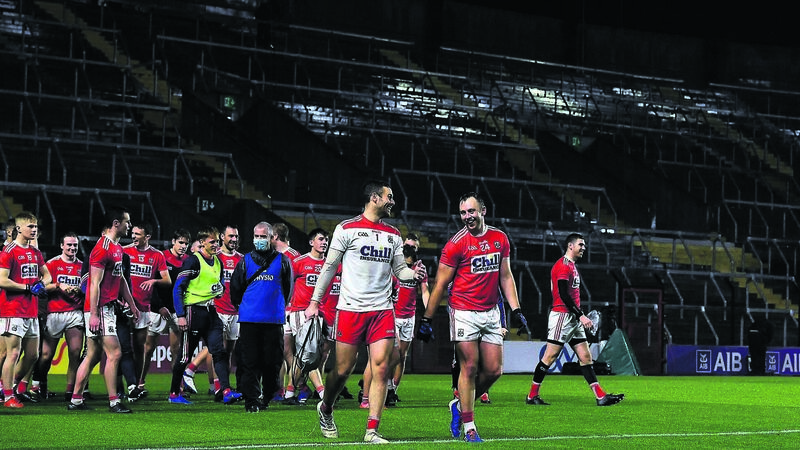Paul Rouse: Why an All-Ireland B Football Championship is a deeply flawed concept

Try from €1.50 / week
SUBSCRIBE
Cork players Micheál Martin and Paul Kerrigan leave the pitch after victory over Kerry in the Munster SFC semi-final against Kerry at Páirc Uí Chaoimh, which knocked the Kingdom out of this year’s championship. Contrast the atmosphere created by that shock win with a backdoor situation where knowing there is a second chance dulls the desperation upon which the very best and most intense of championship matches depend. Picture: Sportsfile
Here are two things that are very hard to argue against:
1. There’s nothing quite like a knockout championship match;
Already a subscriber? Sign in
You have reached your article limit.
Annual €130 €80
Best value
Monthly €12€6 / month
Introductory offers for new customers. Annual billed once for first year. Renews at €130. Monthly initial discount (first 3 months) billed monthly, then €12 a month. Ts&Cs apply.
Newsletter
Latest news from the world of sport, along with the best in opinion from our outstanding team of sports writers. and reporters
Newsletter
Latest news from the world of sport, along with the best in opinion from our outstanding team of sports writers. and reporters
Tuesday, February 10, 2026 - 9:00 PM
Tuesday, February 10, 2026 - 12:00 PM
Tuesday, February 10, 2026 - 9:00 PM
© Examiner Echo Group Limited